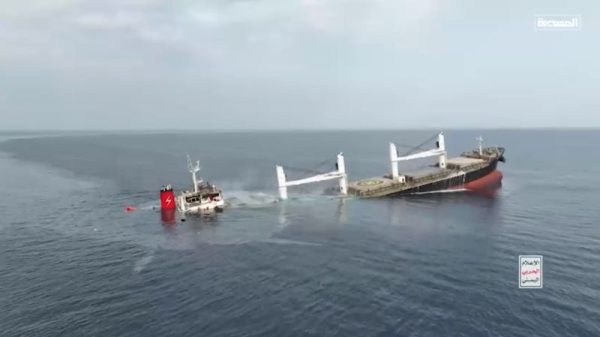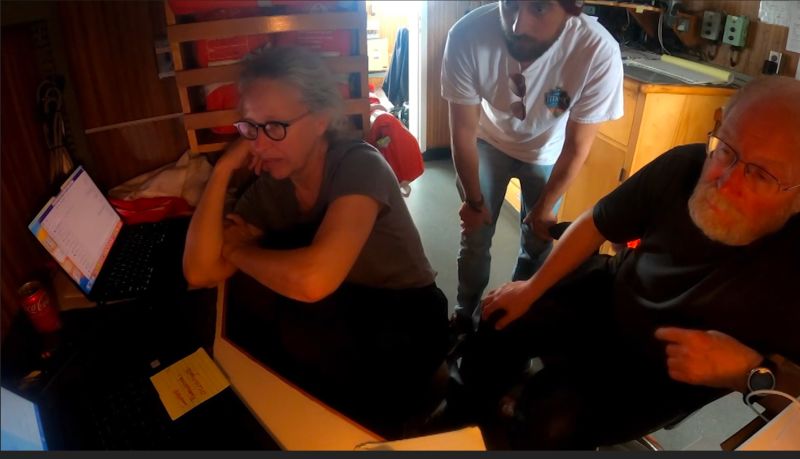The apparent sound made when the Titan submersible imploded in June 2023 has been revealed in new footage released Thursday by the Marine Board of Investigation, the US Coast Guard’s highest level of inquiry.
Cameras on the sub’s mother ship captured the moment when Wendy Rush – whose husband Stockton founded OceanGate, the company which built the ill-fated vessel, and was one of five people who died in its implosion – heard a faint cracking sound similar to a car door slamming.
“What was that bang?” she says, turning to the people next to her.
At that point, the sub had reached a depth of about 3,300 meters and was about 90 minutes into its descent to the ocean floor to give passengers on board an up-close view of the Titanic.
That “bang” is thought to be the moment the sub imploded. However, moments later, the crew on the support ship received a message from the sub saying it had dropped two weights – which may have created the false impression it was still operating normally.
Every system which transmits data through the water has “some inherent buffering or delay related to how they do the signal timing or processing,” he explained.
“If the ‘weights dropped’ message was sent a few seconds before the implosion … the computer may not show the message immediately when it is received. The timing is tight, but possible. It really depends on the system they were using.”
Six seconds after that message, the mother ship lost contact with the sub, according to the timeline established by authorities investigating the doomed expedition.
When the sub failed to resurface, a dramatic international search and rescue mission unfolded in the remote waters several hundred miles southeast of Newfoundland.
Authorities found the Titan’s wreckage on the floor of the North Atlantic Ocean days later, several hundred yards from the Titanic’s remains.
Rush, businessman Shahzada Dawood and his 19-year-old son, Suleman; businessman Hamish Harding; and French diver Paul-Henri Nargeolet were all killed.
Since the implosion, the sub’s fate has been held up by some as an example of the dangers of hubris and greed.
Testimony given during the hearings into the disaster painted a damning portrait of OceanGate and Rush, who charged passengers about $250,000 per dive despite several concerns being raised about the sub’s durability.
Two documentaries scheduled for release in the coming weeks – one produced by the BBC and the other by Netflix – will further investigate the causes behind the disaster.







































